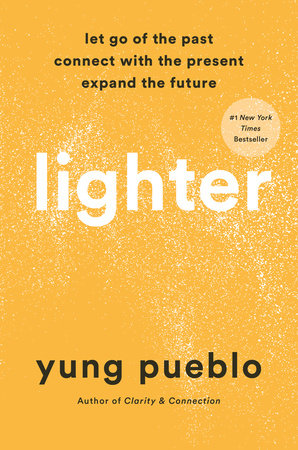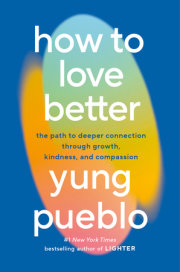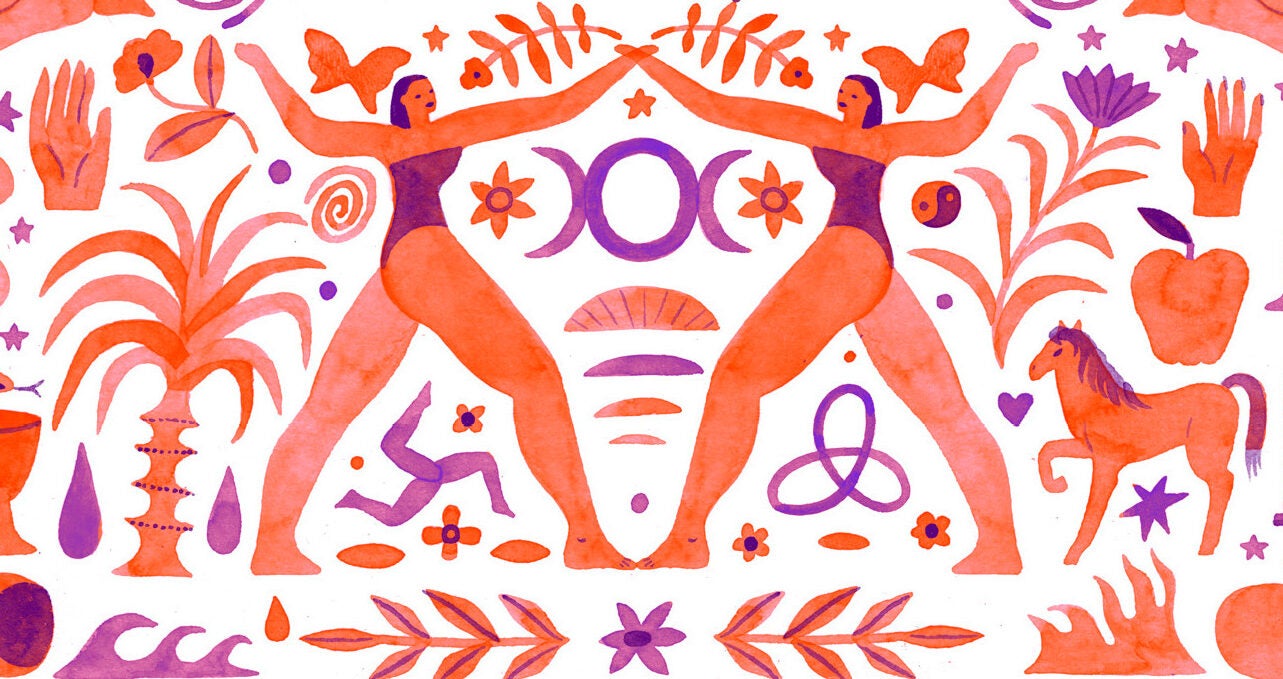Chapter 1
Self-LoveWhen I ask myself what I was addicted to, no particular drug or craving stands out as the one source that led me into darkness. After I stopped the serious drug abuse, I realized that I had been using a mixture of whatever could bring me temporary pleasure to cover up a void in myself that I did not have the courage to face. The void was never satiated or content. Any enjoyment I could experience or attention that people gave me was never enough. It felt like an endless vacuum that could take in the world, spit it out, and still have room to ask for more.
The shift finally came when I stopped throwing pleasure at the problem and started nourishing myself with nonjudgmental and honest attention. The refocusing of my energy into paying attention to all my changing emotions had an immediate effect. Paying attention eased my incessant craving for more pleasure and I stopped feeling so ragged and run-down.
I was not aware of the term self-love when my personal journey started, but I certainly used the practice as a critical stepping-stone. I would not have been able to move forward into a better life without this gentle and accepting attention that I started giving myself. Self-love was the missing link. It was the key to wholeness that I was unconsciously searching for. I discovered that the appreciation you seek from others will not hold the same rejuvenating power as the appreciation, attention, and kindness you can give yourself.
What Does Self-Love Mean?
Anything powerful and long-lasting requires a sturdy foundation. When a home is being constructed, all attention first goes to the foundation that will stabilize the structure. Once that foundation is firmly in place, you can go on to build, expand, and create something magnificent. The evolution of the individual works in a similar manner. Self-love is the first step that all inner and outer success is based on. Self-love gives your journey the energy and stability to stay on a clear trajectory. It is a profound commitment to self-discovery and to making your well-being a top priority.
Somewhere around 2014 or 2015, a big shift started happening culturally regarding the idea of self-love. In particular, I noticed that the word began entering the sphere of social media in a big way. I like to think of social media as a forum where humanity talks to itself, and at the time it felt as if we had collectively picked up the word self-love and started looking at it in different ways, turning it in all directions to get a better sense of its true meaning. Many individuals were asking themselves what self-love means to them, and at the same time I was going through my own process with the word. I wondered: Is self-love real? Is it needed? Is this something I can apply in my daily life? Is self-love different from self-centeredness? What is the relationship between self-love and healing yourself?
Initially, commercialization surrounded the idea, with mainstream media pushing the belief that you could buy yourself happiness and self-worth. But this is misleading because it confuses your needs with your cravings. The understanding that self-love means giving yourself all the things that you want, especially in the material sense, seems fine to a certain extent, but from the experience of many it is clear that material things can only go so far. Treating yourself to small gifts or going on rejuvenating trips can all fall under the umbrella of self-love, but self-love should not be confused with materialism. Material things cannot give you complete balance of mind and they cannot fundamentally heal your past. It is easy to go to extremes in trying to find solace in external or material things and end up further fueling the fire of craving that ultimately results in dissatisfaction. Thinking of self-love only as what you can buy or obtain does not activate its life-changing power.
Others understood self-love as putting yourself first at all costs. It makes sense that many would embrace this understanding of self-love because too many of us live our lives for others and fall into cycles of people-pleasing without taking the time to properly take care of ourselves. However, we run the risk of falling into the trap of ego if we only think of ourselves. Putting ourselves first in all situations can quickly become another type of extreme that disregards the welfare of others and pushes us to become more and more self-centered. If your ego is growing, then your mind is full of agitation and will have great difficulty seeing reality clearly. If self-love is supposed to help our lives, then this must not be the right direction.
The understanding of self-love that makes the most sense to me is much more internal. It is the way you relate to yourself with compassion, honesty, and openness. It is meeting every part of yourself with unconditional acceptance, from the parts that you find easy to love, to the rough and imperfect parts that you try to hide from. Self-love begins with acceptance, but it does not stop there. Real self-love is a total embrace of all that you are while simultaneously acknowledging that you have room to grow and much to let go of. Real self-love is a tricky concept that requires a sense of balance to be able to use its transformative power—it is nourishing yourself deeply without becoming self-centered or egotistical. It is no longer seeing yourself as less than others, but at the same time maintaining the humility not to see yourself as better than others. The greatest benefits of self-love come from the positive interactions between you and yourself. Self-love is not only a mindset but a set of actions.
Taken to its highest form, self-love is an energy we use to evolve. Ultimately, I define self-love as “doing what you need to do to know and heal yourself.”
True self-love is multifaceted and includes radical honesty, positive habit building, and unconditional self-acceptance. These three pillars work internally and externally to generate and support an enduring sense of self-love.
everywhere there was
once a lie inside of you
there is now truth
a truth that enhances
the connection between
you and yourself
Radical Honesty
Radical honesty, a form of authenticity that begins inside you, is a warm recognition that you gently apply to your conscious life. This view of radical honesty is not about telling everyone what you think. Instead, it is the root from which self-awareness grows. Thoughts and emotions that were once discarded or ignored are now embraced. Where you once felt the urge to run away, you now challenge yourself to face whatever is there. More than anything, any lie that you formerly told yourself is examined so that the truth may come forward. The key to radical honesty is that this is not about you and other people, but about how you relate to yourself in all situations, whether you are alone or with others.
Radical honesty is not about punishing yourself or harsh self-talk. Rather, it is about calmly being in constant contact with your truth. Practicing this balance is critical. In the beginning, radical honesty may feel hard to manage, but it is truly a long-term project. If you want to see great results, you need to wholeheartedly commit to the process, especially when it gets difficult, so you can reject the temptation to fall back into unconsciously motivated behavior.
If you continue to tread down the path of lies, fear and its two primary manifestations—anxiety and anger—will continue to grow. First, you fear truth and then you lie to be rid of your fear, unwittingly falling into a loop where you actually continue empowering your fear because every lie breeds further anxiety. The only way to put an end to the burning fire of fear is by thoroughly extinguishing it with truth. Dishonesty is the fear of truth.
Dishonesty with yourself creates distance. The more lies you build up over time, the more you become a stranger to yourself. When you cannot accept your own truth, you are moving in the opposite direction of self-awareness. When lies suffuse your mind, life becomes opaque and the right actions you need to take to ease your inner tension become difficult to decipher. The lies you tell yourself will also manifest as a lack of depth in your relationships. A deep connection with another being is not possible if you are deeply disconnected from yourself.
As you practice radical honesty, this distance decreases and your mind starts to become calmer. Telling yourself the truth is the beginning of inner harmony. This harmony immediately makes your relationships more vibrant. In examining your past and uncovering the truth that you previously refused to own, you actually make the power of your honesty stronger. This higher degree of presence allows your self-awareness to flourish. Eventually, your radical honesty matures to the point where it becomes non-negotiable—you carry it wherever you go and in every situation it becomes an asset that informs your decisions.
Where you once coaxed yourself into thinking nothing was wrong, you now admit to yourself that turbulence or hurt was actually there. Where you once forced yourself into thinking you liked something, you admit that you did find it disagreeable. Where you once denied old pain, you admit that there is a wound within you that needs tending.
Copyright © 2022 by Yung Pueblo. All rights reserved. No part of this excerpt may be reproduced or reprinted without permission in writing from the publisher.









